It’s beginning to feel a lot like Super Bowl week, everywhere you go—at least at the Mandalay Bay, which houses the NFL Experience and the media center, and where swarms of Chiefs and 49ers fans descended yesterday after two quiet days. For today’s newsletter I wrote about the penetrating buzz from the major sports streaming deal that was announced Tuesday. That and I take a look at the new NFLPA leader (who did well in his first Super Bowl press conference, even if he did flub a major player’s name), and I revisit a bit of unreported streaming news from the commissioner’s press conference.
—Daniel Kaplan
|
|
|

|
When news broke Tuesday that ESPN, Fox Sports, and Warner Bros. Discovery were planning a bundled sports streaming platform—a stunning move that could reorder sports consumption—Lawrence Epstein’s phone blew up.
Says the chief operating officer of UFC: “People are talking about it, as soon as the [news] came out yesterday I was on about five text threads … talking about what this is all about. I mean, ultimately, it’s more to come from those major media companies as time goes by.”
UFC is based in Las Vegas, so Epstein is busy preparing for a fight in town Saturday, and like so many others he’s soaking up the Super Bowl atmosphere, which can act as a bubble to those in the host city, limiting focus on outside news. The media is here to report football, and those in the sports business are busy with one of their most frenzied weeks. But this streaming development pierced the bubble, evidenced by Epstein’s phone.
Marc Ganis is a sports consultant with close ties to the NFL, and he’s on the ground in Vegas. He felt it, too, and he spoke at length about the prospective industry-shattering shift—but he noted that it was early to fully assess the deal:
“You have to look at why they announced this yesterday,” Ganis says. “You have Disney, [which has] a shareholder proxy battle and a share price that’s pretty bad compared to where it was. You’ve got Fox, [which] announced softening of advertising and … never actually made that massive investment in sports streaming. And then you’ve got Warner Bros., which really needs to figure out a way to pay to keep the NBA with the much bigger numbers that are going to come in—and their stock price has been in the toilet too.”
Epstein, for his part, is hopeful that the coming streaming bundle will goose the distribution of UFC, which is carried on ESPN and ESPN+, but that could all come down to the details of the arrangement, which are still trickling in.
“I’m sure these companies will provide more information about their intentions,” Epstein said, “and some of the other nuances of this particular deal.”
|
|
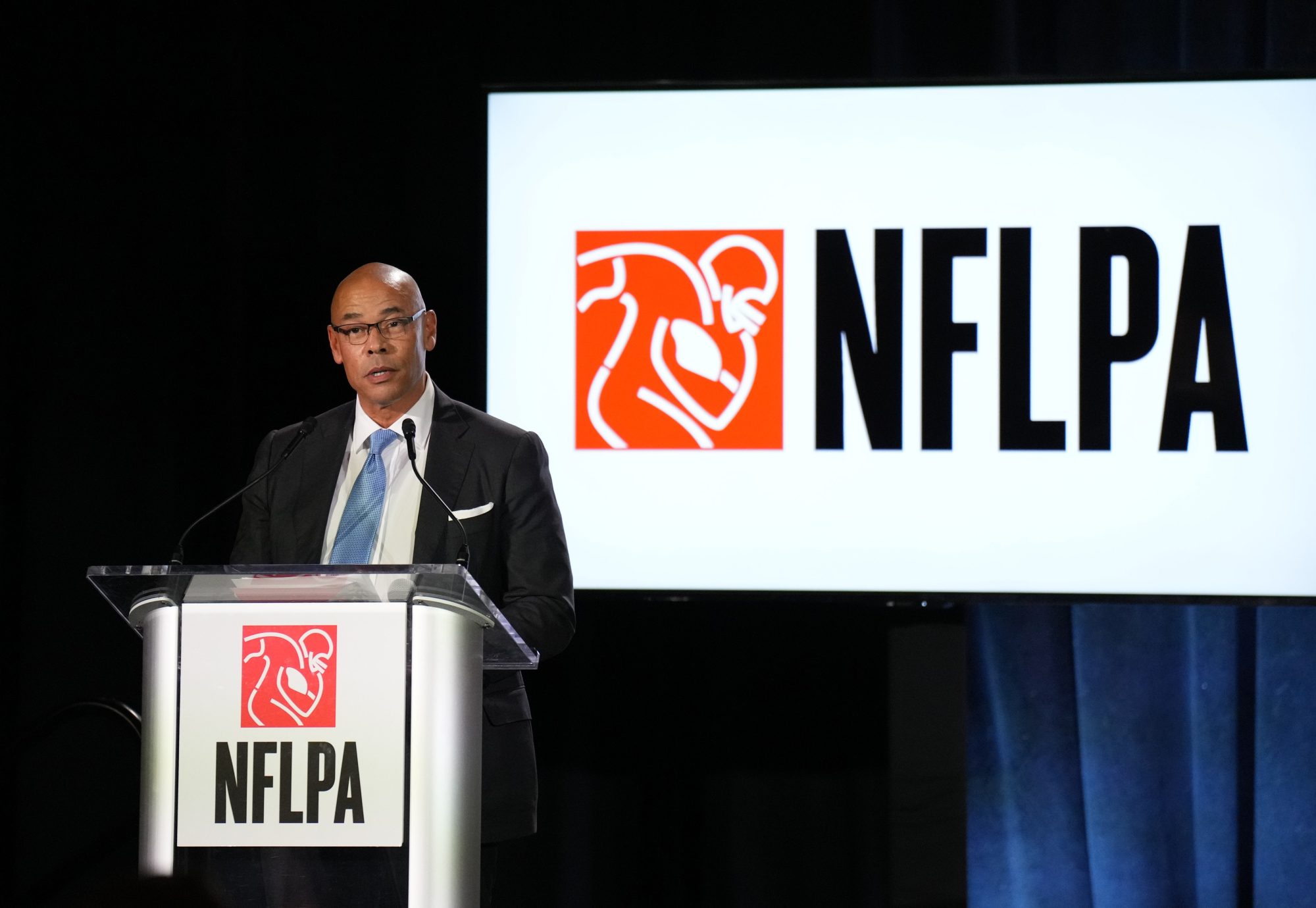
|
“I’m a corporate guy.”
So said Lloyd Howell yesterday at his first Super Bowl news conference as the executive director of the NFLPA. And compared to his often voluble predecessor—and before that a towering, booming-voiced retired player, Gene Upshaw, who held the post for a quarter century—the reserved former CFO is certainly right.
This marked the first real chance for the media to meet the under-the-radar Howell, who prefers a buttoned-down approach. He spent 34 years in the private sector, most of them at defense contractor Booz Allen Hamilton, and he was a surprise pick to lead the union when announced in June. (He took over in August.)
Dressed in a business suit with a light blue tie and sharing the stage with player leaders, Howell rarely cracked a smile but spoke smoothly, calmly, and reasonably about finding compromise with a league with which he has yet to do major battle.
Howell has visited all 32 teams and met 20 owners (disclosing little of his view of them), but he is still getting his feet settled in the football world. At one point he referred to Browns quarterback Deshaun Watson, who has the largest guaranteed contract in the NFL, as Deshaun Watkins.
But the NFL players who hired him knew they weren’t getting a football junkie—they sought a savvy businessman. Asked about players wanting equity in teams, which the league has already ruled out, Howell said, “We really have to roll up our sleeves and see if there is some middle ground we can get to.”
Howell cited two successes already: an extension of long-term disability benefits for retired players, and getting the league to lower the suspension from six to two games for betting on non-NFL contests in team facilities. The main cause he has dedicated his first few months in office to, though, is grass playing fields. Only 13 of the 30 NFL stadiums have grass, which a strong majority of players want, Howell said.
“Our survey results are unquestionable, with nearly 1,700 respondents, 92% prefer to play on high-quality grass, six are indifferent … and the kickers don’t like when I say that the balance is kickers,” he said, drawing chuckles.
The union is particularly galled that 11 NFL stadiums will host 2026 FIFA World Cup matches, which will require those venues with artificial turf to convert to grass just for the tournament. “[The] football game is different from soccer, we appreciate that,” Howell said. “But the science alone says that this is possible. And so when we have engaged the league, we’ve actually had a very rational conversation.”
Indeed, Howell has yet to cross swords with the NFL, whereas his predecessor, DeMaurice Smith, started by throwing verbal bombs in the shadow of a looming lockout. If it’s hard to imagine on first impression Howell throwing bombs, given his pacific, dealmaker tone, that doesn’t mean he is naive. Queried about the NFLPA’s more than three-quarters of a billion dollars in assets, Howell asked the audience how much would be necessary for a one-year strike fund. When no one answered, he replied: $12 billion. “We are far off,” he said, adding that the union is exploring new businesses to generate more cash. (The current collective bargaining agreement expires in 2031.)
Whether it’s grass fields or hip drop tackles (which Howell and the players who joined him onstage supported, in opposition of the league), Howell is convinced that a middle ground can be found with owners. Time will tell if that approach truly works.
|
|
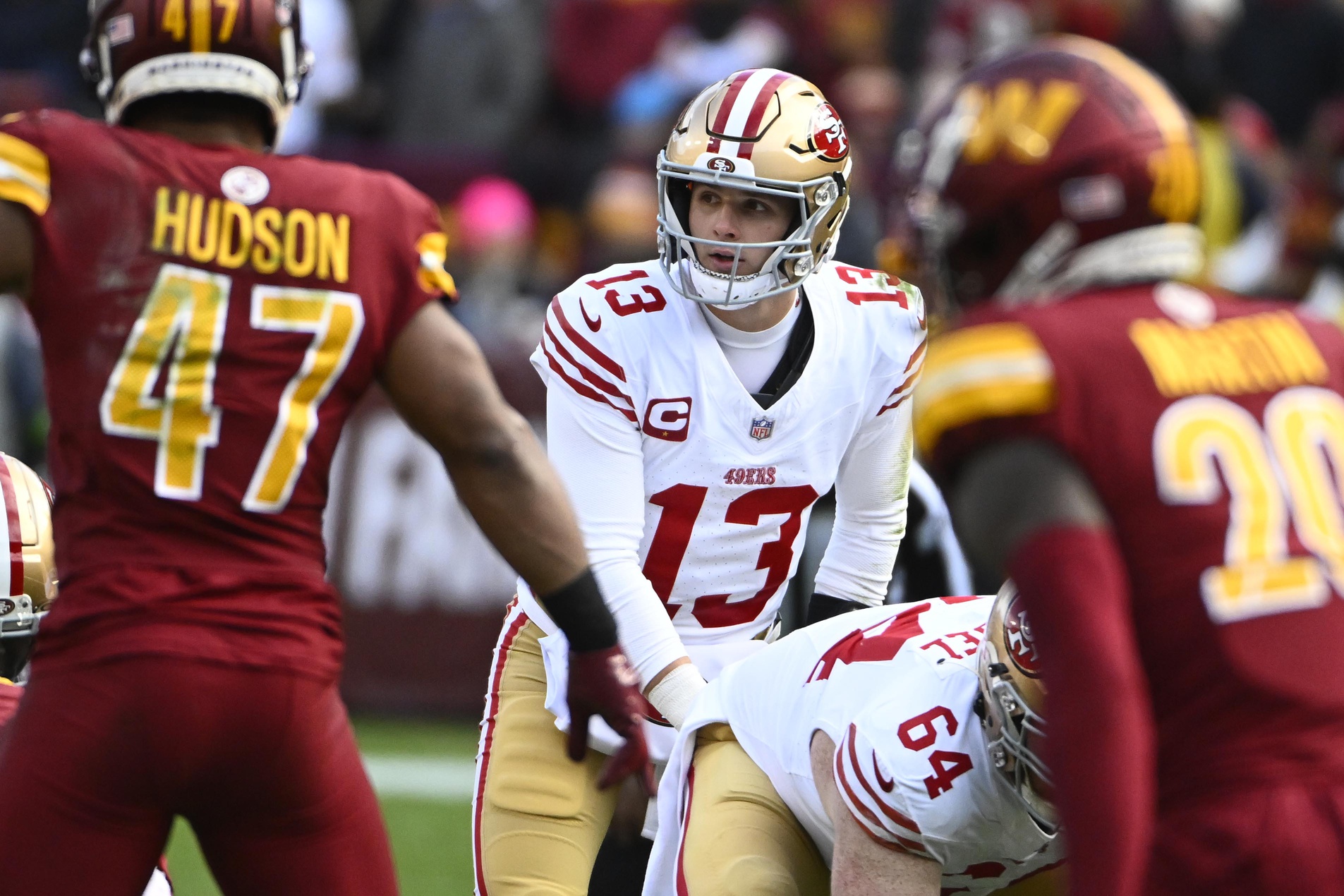
|
In one overlooked bit of news from Roger Goodell’s Monday press conference, the NFL commissioner shared that the total number of Sunday Ticket subscribers had doubled in the first year the out-of-market package lived on YouTube.
Sunday Ticket had been on DirecTV since its launch in 1994, but the package did not make money for the satellite carrier. YouTube is paying an average of $2 billion annually over seven years.
DirecTV is believed to have had roughly one million subscribers when it bowed out last year, so a doubling would mean a two-million-subscriber base, far higher than the 1.5 million estimated by Morgan Stanley in October.
This would seem like good news for the NFL and YouTube, whose parent company Alphabet did not immediately respond to request for comment. But at least one media analyst is not terribly impressed with the increase:
“It’s great that it looks like Sunday Ticket grew from approx 1M subs to 2M+,” texted Patrick Crakes, a former Fox Sports executive. “That said, given expectations about a very large addressable market for [Sunday Ticket] once it was liberated from the set DirecTV universe to being available to anyone with a broadband connection via YouTube, it seems a bit anticlimactic. Would be nice to have some official figures to compare to previous seasons.”
|
|
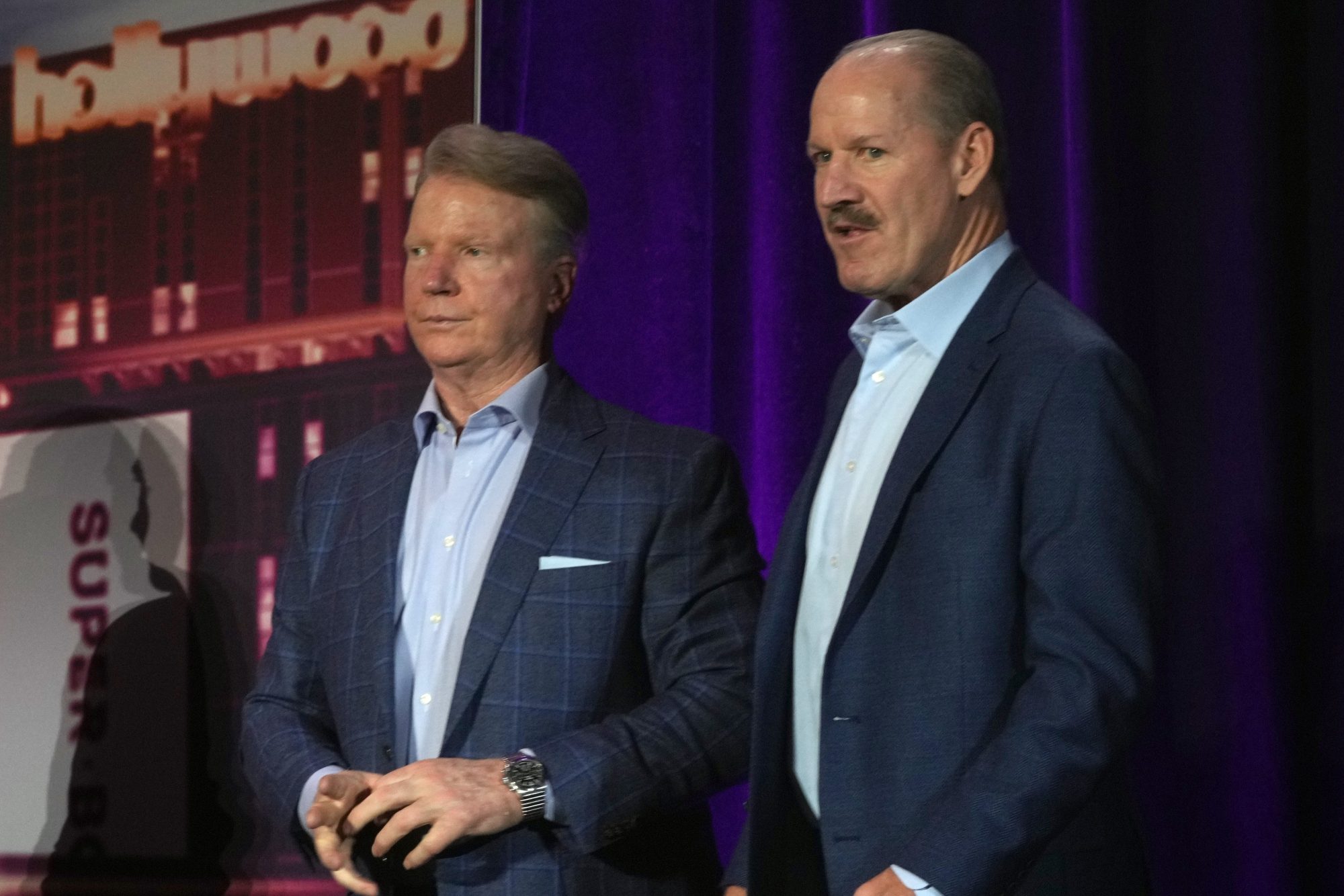
|
“I hope it doesn’t get completely out of hand, but I know it’s going to keep going that way.”
—Phil Simms on the NFL putting more games on streaming services and behind paywalls. To hear more from Simms, Jim Nantz, and Tony Romo, give a listen to the latest episode of Front Office Sports Today.
🎧 Listen and subscribe on Apple, Google, and Spotify.
|
|
- The NFL typically doesn’t play Friday or Saturday games until after the end of the high school and college football regular seasons. But a loophole in the Sports Broadcasting Act of 1961 will put the NFL under the Friday night lights in September.
- Nick Saban is joining an ESPN College GameDay cast that includes Rece Davis, Lee Corso, Desmond Howard, Kirk Herbstreit, and Pat McAfee. He’ll also contribute to ESPN’s NFL draft coverage.
- Super Bowl LVIII is projected to smash betting records, according to the American Gaming Association.
|
|
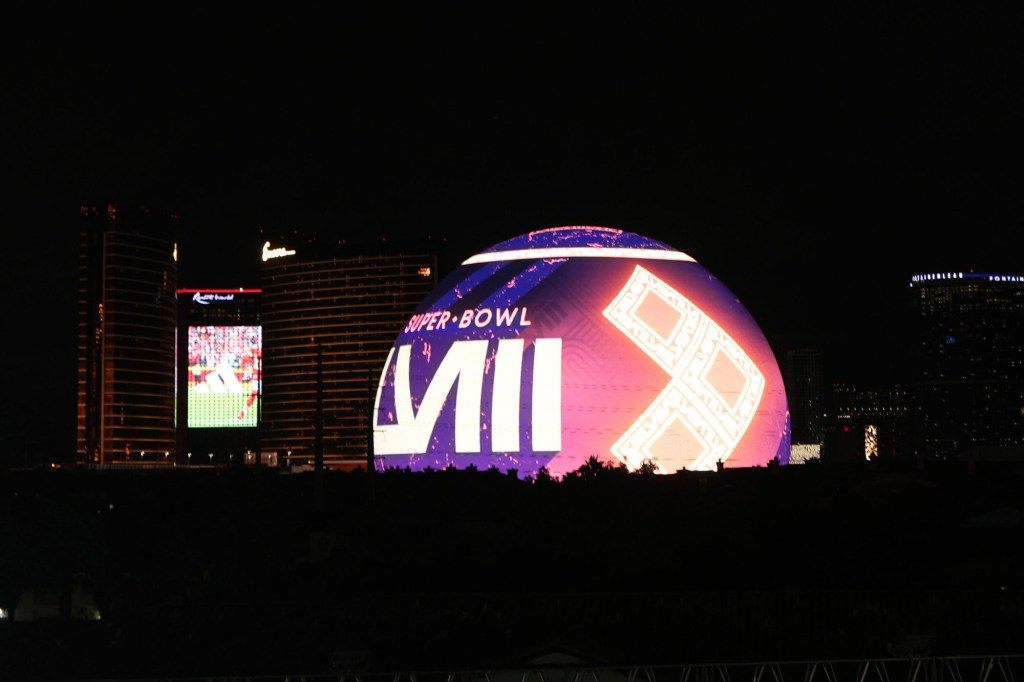 | The league has embraced streaming. Could that mean a paywall Super Bowl? |
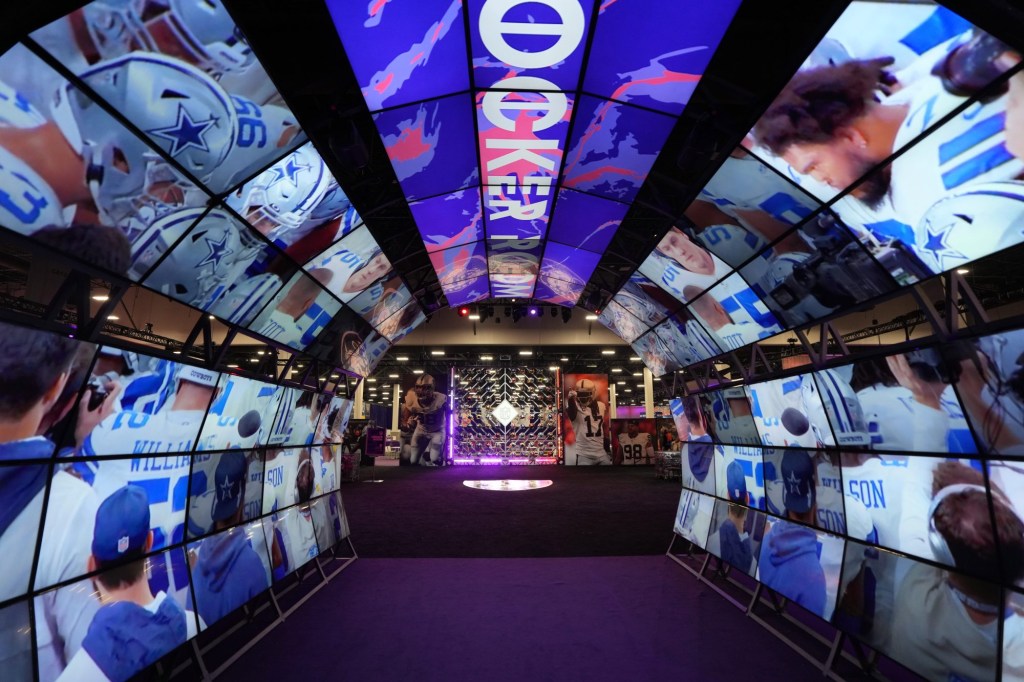 | An exclusive poll dives into the prospect of a PPV Super Bowl. |
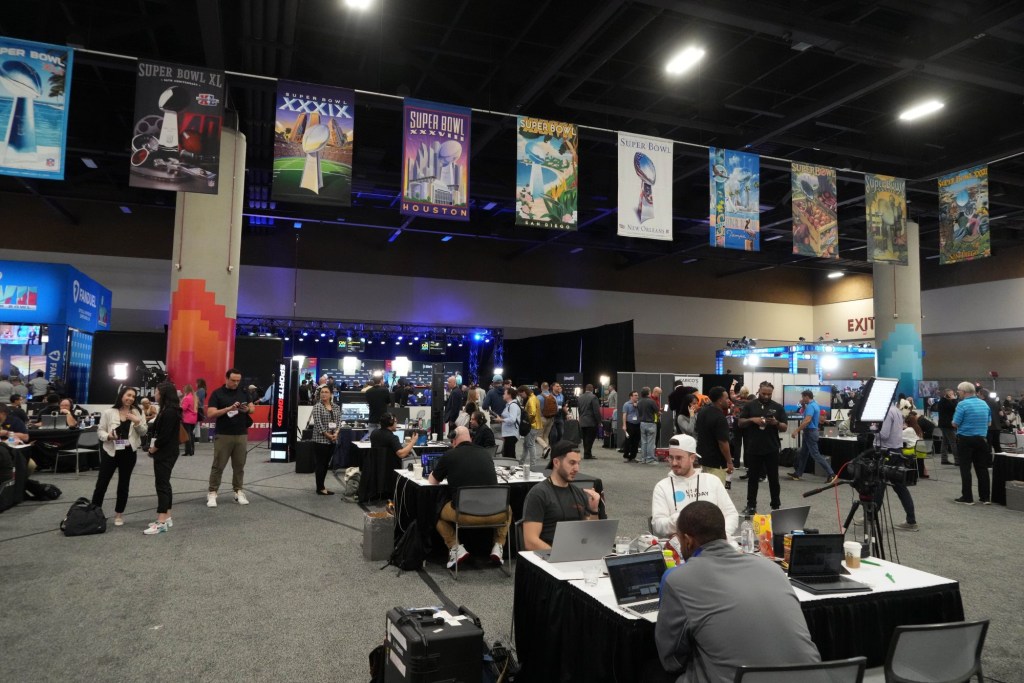 | Five days of players, personalities, and agents, each with something to sell. |
|
|